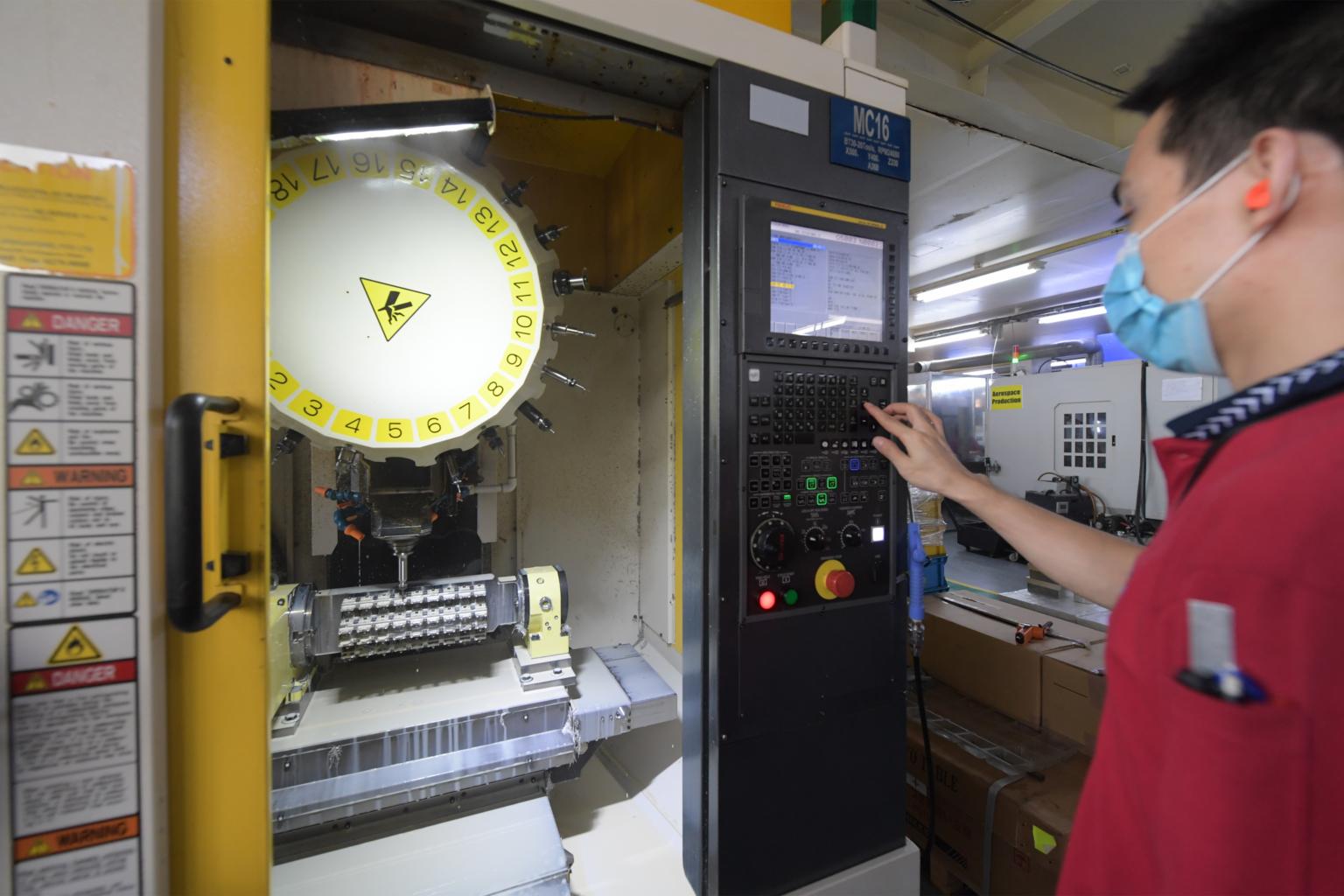Precision engineering sector in Singapore to receive more support: Chan Chun Sing
Sign up now: Get ST's newsletters delivered to your inbox

The scheme has supported more than 280 projects from over 1,500 firms of all sizes, since it was introduced in 2010.
ST PHOTO: ALPHONSUS CHERN
Follow topic:
SINGAPORE - The growing precision engineering sector here will benefit from new enhancements to a scheme that helps companies of all sizes and even other sectors build partnerships, said Minister for Trade and Industry Chan Chun Sing on Monday (Nov 16).
This aims to strengthen the overall sector ecosystem as it continues to grow - despite the coronavirus pandemic - fuelled by booming demand for new technological solutions, he added.
He was speaking to the media during the weekly sector update, while visiting German technology group Rohde & Schwarz.
"The advent of 5G technologies, the Internet of Things and all the new breakthroughs that we see in the technological fields will require a lot of precision engineering behind the scenes," Mr Chan said.
"We have every confidence that if we continue to invest in this sector, build up the core engineering capabilities, Singapore will be able to stand out as one of the precision engineering hubs in this region and in the whole world as well," he added.
"There will be tremendous opportunity for this sector, as Asia continues to grow from strength to strength, and the demand for such products and services will continue to rise in the coming years, both in the information and communications technology sector and the biomedical sector, which can ultimately lead back to the precision engineering sector."
The industry grew by 10 per cent in the first nine months of this year compared with last year, driven by the machinery and systems sector, which grew 15.5 per cent in the same period.
But the sector's growth does not just hinge on individual firms but rather on the performance of small and medium-sized enterprises (SMEs) in the whole ecosystem. This involves SMEs collaborating with big companies and the continuous nurturing of the engineering talent required for the industry to continue long-term growth, he noted.
To this end, the Pact scheme will be enhanced until March 2022. It provides firms with support to develop capabilities and their business through partnerships with others.
In addition, it helps original equipment manufacturers improve the diversity, resilience and responsiveness of their supply chains, while aiding local suppliers in deepening capabilities and growing their revenue and competitiveness.
The scheme has supported more than 280 projects from over 1,500 firms of all sizes since it was introduced in 2010.
With the new enhancements, the support rate for firms for qualifying costs will be increased from the current 50 per cent to 70 per cent for manpower categories.
It will also go up to 50 per cent for all other cost categories. Support levels now stand at 50 per cent for equipment and 30 per cent each for materials, software, and professional services.
The scheme's coverage will also be extended to support the qualification of new suppliers and new or existing products.
Singapore firms with overseas manufacturing activity will also get more help, so they can internationalise and become potential suppliers to more original equipment manufacturers.
Mr Chan noted that these enhancements can benefit 16 prospective partnership projects that are still in discussions.
"It is not just about the small companies or the big companies. It is really about the whole ecosystem coming together to present an attractive proposition to potential investors to continue to invest in the precision engineering industry in Singapore," he said.
According to the September jobs situation report by the Ministry of Manpower, there are also nearly 1,500 job, traineeship and attachment opportunities in the precision engineering industry, offered by over 270 firms.
"Engineering talent (has) to be groomed on a sustained basis over the long haul. This is why we will continue to invest in the long term, notwithstanding the short-term challenges that we might face because of Covid-19 or geopolitical tensions," Mr Chan said.
"We want to continue our investment in this area to distinguish ourselves as one of the engineering hubs of the region and as part of the global value chain."

